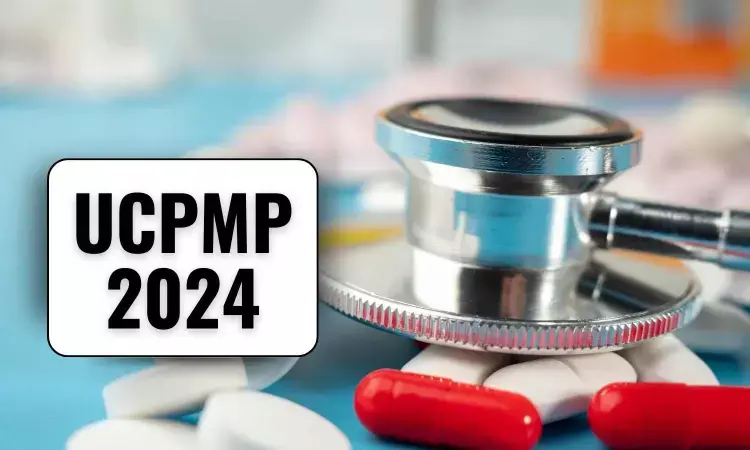- Home
- Medical news & Guidelines
- Anesthesiology
- Cardiology and CTVS
- Critical Care
- Dentistry
- Dermatology
- Diabetes and Endocrinology
- ENT
- Gastroenterology
- Medicine
- Nephrology
- Neurology
- Obstretics-Gynaecology
- Oncology
- Ophthalmology
- Orthopaedics
- Pediatrics-Neonatology
- Psychiatry
- Pulmonology
- Radiology
- Surgery
- Urology
- Laboratory Medicine
- Diet
- Nursing
- Paramedical
- Physiotherapy
- Health news
- Fact Check
- Bone Health Fact Check
- Brain Health Fact Check
- Cancer Related Fact Check
- Child Care Fact Check
- Dental and oral health fact check
- Diabetes and metabolic health fact check
- Diet and Nutrition Fact Check
- Eye and ENT Care Fact Check
- Fitness fact check
- Gut health fact check
- Heart health fact check
- Kidney health fact check
- Medical education fact check
- Men's health fact check
- Respiratory fact check
- Skin and hair care fact check
- Vaccine and Immunization fact check
- Women's health fact check
- AYUSH
- State News
- Andaman and Nicobar Islands
- Andhra Pradesh
- Arunachal Pradesh
- Assam
- Bihar
- Chandigarh
- Chattisgarh
- Dadra and Nagar Haveli
- Daman and Diu
- Delhi
- Goa
- Gujarat
- Haryana
- Himachal Pradesh
- Jammu & Kashmir
- Jharkhand
- Karnataka
- Kerala
- Ladakh
- Lakshadweep
- Madhya Pradesh
- Maharashtra
- Manipur
- Meghalaya
- Mizoram
- Nagaland
- Odisha
- Puducherry
- Punjab
- Rajasthan
- Sikkim
- Tamil Nadu
- Telangana
- Tripura
- Uttar Pradesh
- Uttrakhand
- West Bengal
- Medical Education
- Industry
UCPMP 2024: 5 major takeaways for Indian Pharma Marketers

New Delhi: With the Government of India announcing the Uniform Code for Pharmaceutical Marketing Practices (UCPMP) 2024, it serves as a first framework guiding ethical marketing practices within the pharmaceutical industry in India. With its coverage of various aspects of marketing and promotional activities, UCPMP 2024 sets out various DOs and DON'Ts for the pharma companies . Here are five significant takeaways from the UCPMP 2024 that pharmaceutical professionals should closely understand and implement in their operations.
Putting a cap on the volume of how many samples have to be given, the guidelines state that "Sample packs should be limited to prescribed dosage for not more than three patients for the required course of treatment and no company should offer more than twelve such sample packs per drug to any healthcare practitioner per year."
Putting a limit on the size of the sample, the guidelines add that each sample pack should not be larger than the smallest pack present in the market and that each sample should be marked "free medical sample not for sale" or bear another legend of analogous meaning. There is a complete BAN on the supply of a sample of a drug that is a hypnotic,sedative, or tranquilizer.
The guidelines further stress on accounting and record keeping, stating that Each company should maintain details such as product name, doctor name, quantity of samples given, date of supply of free samples to healthcare practitioners etc, and the monetary value of samples so distributed should not exceed two percent of the domestic sales of the company per year.
What is important to note here is the call to transparency where UCPMP states that All pharmaceutical companies should share the details of such events conducted by them, including the expenditures incurred thereupon, on their website, and may be subject to independent, random, or risk-based audit for this purpose. All organizers of such events should explicitly spell out the procedure followed in the selection of participants and speakers, display a statement of their funding sources and expenditures on their website, and may be subject to special audit for this purpose.
Entities incurring expenditure on such events, as well as participants and speakers, must comply with the relevant provisions of the Income Tax Act 1961 as amended from time to time, the guidelines further add
In particular the UCPMP bars the pharma companies from endulging in:-
"Where any item missing, the Code as per the Indian Medical Council (Professional Conduct, Etiquette and Ethics) Regulation, 2002, as amended from time to time, will prevail" the guidelines state
Meghna A Singhania is the founder and Editor-in-Chief at Medical Dialogues. An Economics graduate from Delhi University and a post graduate from London School of Economics and Political Science, her key research interest lies in health economics, and policy making in health and medical sector in the country. She is a member of the Association of Healthcare Journalists. She can be contacted at meghna@medicaldialogues.in. Contact no. 011-43720751


